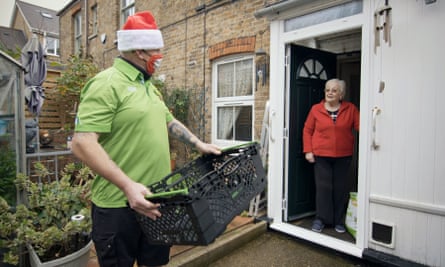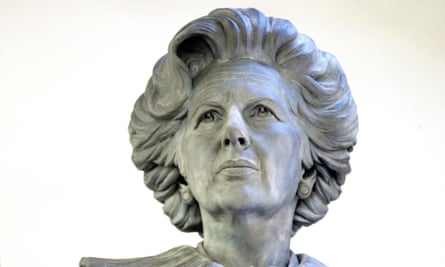With the developments in laboratory-cultured meat, vegetarians and vegans need to ask themselves: is it still about animal welfare or is it about stopping people eating meat?
Cultured meat, produced in bioreactors from muscle cells taken from live animals, has been approved for the first time by a regulatory authority. “Chicken bites” by San Francisco startup Eat Just have been approved for sale by the Singapore Food Agency. It’s a landmark moment that could lead to a revolution in “kind/clean” meat, significantly cutting down industrial livestock production, potentially doing away with it altogether.
It could also prove vastly more environmentally friendly, with 96% lower greenhouse gas emissions and 99% lower land use, while avoiding bacterial contamination from animal waste and industrial hormone/antibiotic overdosing. Now, various companies, including major meat producers, are developing lab meat, acquiring global regulation and convincing the public.
This is mind-blowing. Just think: the possibility of no more factory farming or abattoirs. It’s early days and major concerns need addressing: expense, quality, transparency of methodology and production, worldwide regulation, soothing of consumer anxiety about safety and more. But wouldn’t we rather address such issues? As a vegetarian, I wouldn’t eat lab meat, but I love the thought of others being able to consume safe, cruelty-free meat with a clean conscience. If animals aren’t suffering, if the environment benefits, there’s no issue… right?
Some disagree, arguing that lab meat perpetuates fixation with meat consumption and that the focus should be on plant-based diets. They’re also concerned about meat producers wanting in, which makes no sense. If proper regulations are in place, surely it’s a huge plus for meat producers to be involved? The point, surely, is to stop suffering and destruction, not to stop profits.
Perhaps at least some of the opposition to lab-grown meat is rooted in identity, an “ethical” need verging on a demand for people to join them in finding consuming meat abhorrent, and perhaps that everyone should aim to be vegan, or at least vegetarian. Except it’s never going to happen. While there’s been a surge of interest in meat-free products, many people still want to eat meat. And, frankly, if it’s cruelty-free and environmentally friendly, why shouldn’t they?
Maybe it’s time to check priorities. Is this still about animal welfare and the environment or has it become about control-freakery over what people eat? Has something hardline and dictatorial set in? The irony is that it’s these very “ethical” types who almost singlehandedly drove the push for viable mass-market, cruelty-free options. This is effectively what they wanted… and they accomplished it! So, of course, still ask questions, but also rejoice, co-operate, in what could become a global gamechanger. Come on, vegans, take the win.
I worry I’m spending so much time with delivery drivers

In these changing times, are our relationships with delivery drivers becoming more personal and intense?
Don’t be alarmed, this isn’t a porn script pitch (possible title: The DPD Man Always Knocks Twice). A Which? survey reports that as many as two in three people experience problems with deliveries. Parcels lobbed over your wall. Parcels lobbed over other people’s wall. Fake signatures. Items missing. “Safe places” ignored and parcels left in full view on doorsteps. The cards insisting you were “missed” when you were definitely at home, making you feel as if you’re in a Hitchcock thriller.
In the run-up to Christmas, especially this year with more people shopping online, it can sometimes seem like the wild west is being re-enacted with courier vans and bikes. Of course it isn’t. Most delivery drivers, male and female, do a great job, remaining professional and friendly, despite being overworked and underpaid.
Still, it’s interesting how, as the high street disintegrates, it’s reforming as relentless traffic on residential streets. Nor is it entirely impersonal. While the personnel fluctuates, the same faces tend to reappear on rounds. Just recently, I feel I’ve seen certain drivers more often than members of my own family. I’ve formed opinions about them: “Oh good, him, he never chucks parcels into puddles.” Just as they’ve probably formed a few about me: “Jeez, her again, does she never stop spending?”
Time was, you’d always see the same milkmen, dustmen or postmen. They were such fixtures of British life that children would want to grow up to become them. Now, for most people, it’s probably the delivery drivers they see the most and a new subculture is forming. No wonder relations occasionally fray or become outright dysfunctional. We may be seeing too much of each other.
You don’t have to love Thatcher to believe she merits a statue

I couldn’t stand Margaret Thatcher, but does she merit a statue in her home town? Of course she does. Plans to erect Douglas Jennings’s statue of Lady Thatcher in Grantham, Lincolnshire, have met with more opposition, focusing on the cost of the unveiling ceremony.
It’s a lot of money (GBP100,000), especially when people are struggling during the pandemic. While it’s expected that the unveiling will be funded by private donations, it will be underwritten by the council. However, this isn’t just about money. This is about Thatcher being a divisive figure. In what’s been described as a “mini Brexit“, there were online calls for the statue to be pelted with eggs.
Isn’t this rather pathetic? There’s no denying that Thatcher was divisive, but she was many other things too, not least the first female prime minister and one of the most memorable British leaders of all time. It was interesting, recently, how fans and detractors alike were irritated by Gillian Anderson’s overly mannered portrayal of Thatcher in The Crown. Even those of us with no time for Thatcher thought it was unfair to reduce her to a caricature.
Love her or hate her, as PM, Thatcher dominated the national and international stage. Attempts to diminish her achievements, such as opposing the Grantham statue, look petty and ridiculous.
o Barbara Ellen is an Observer columnist